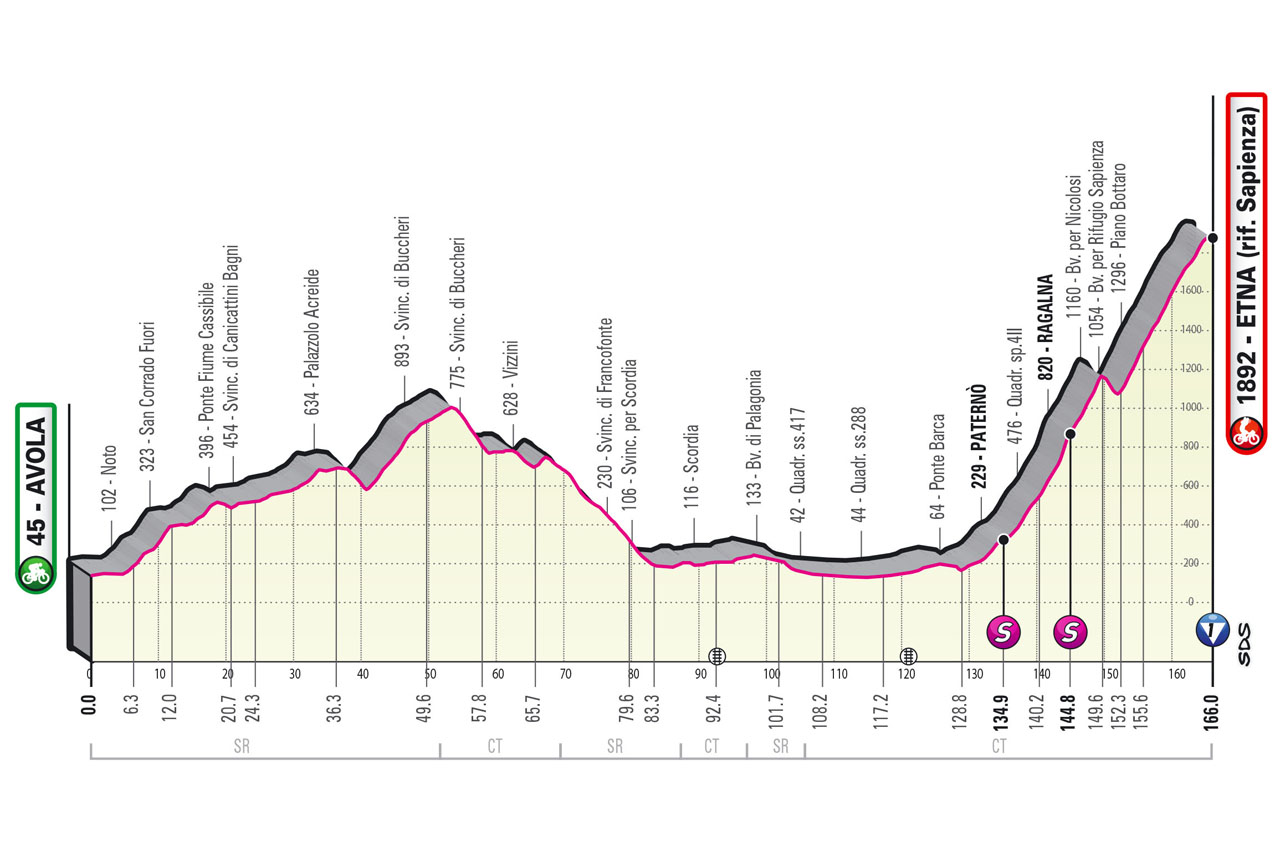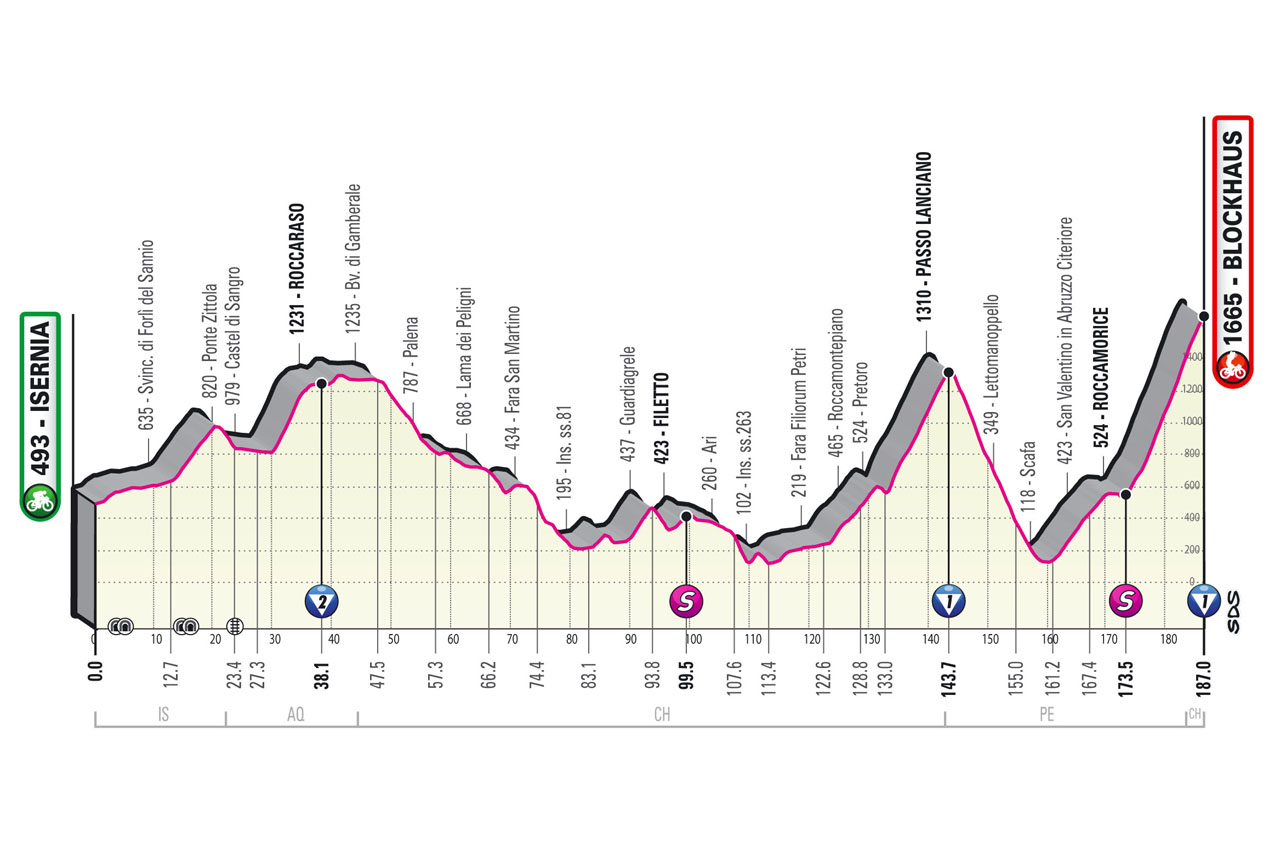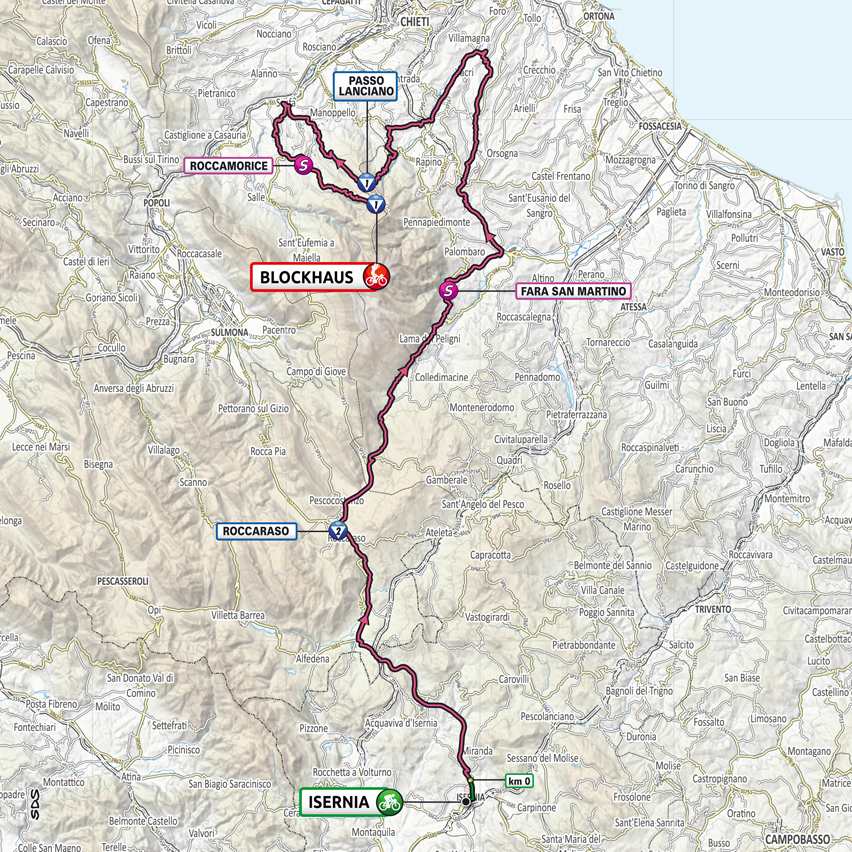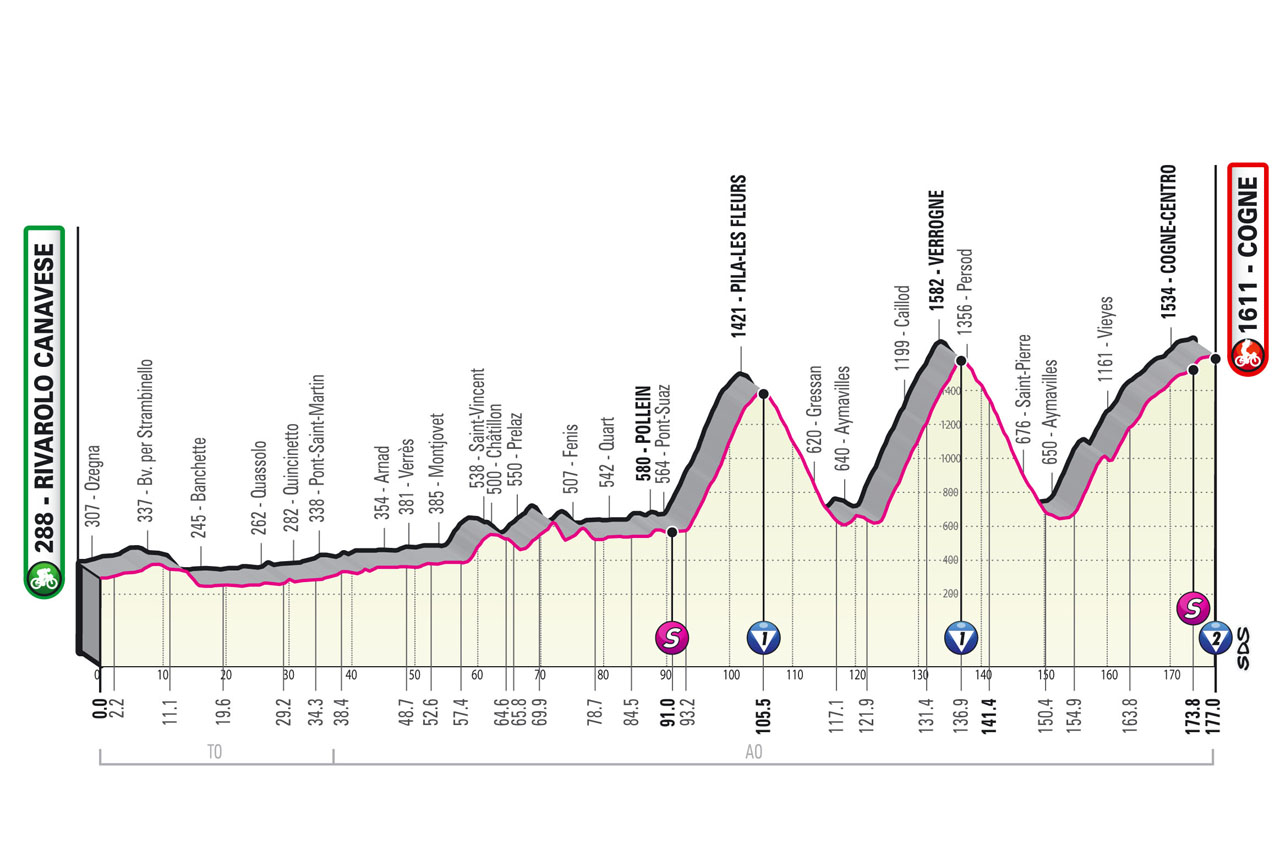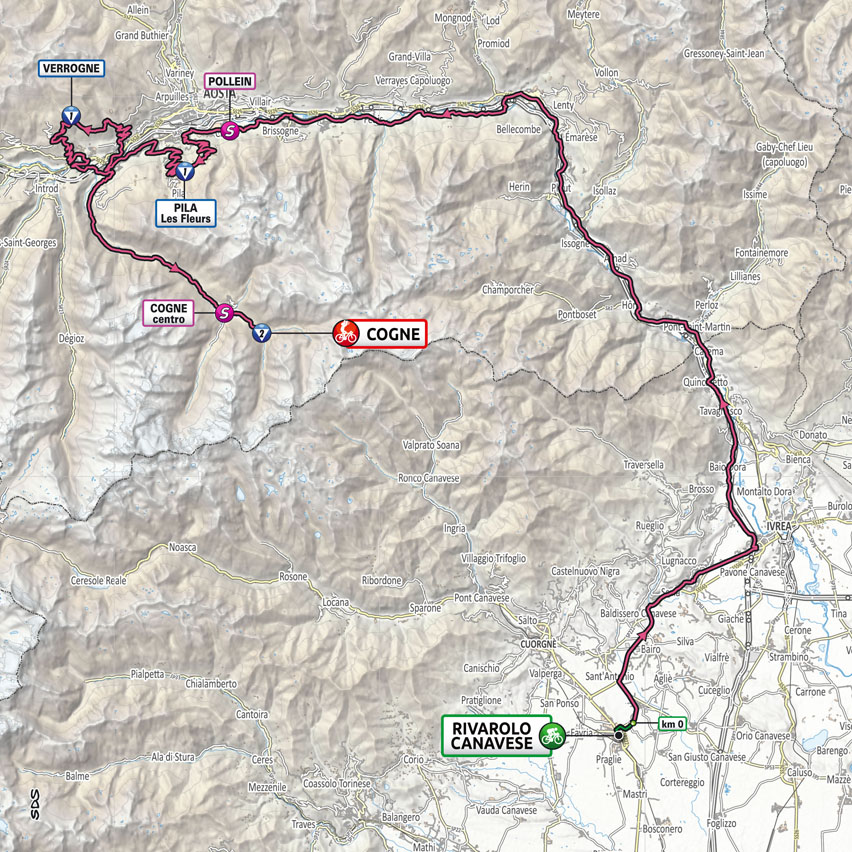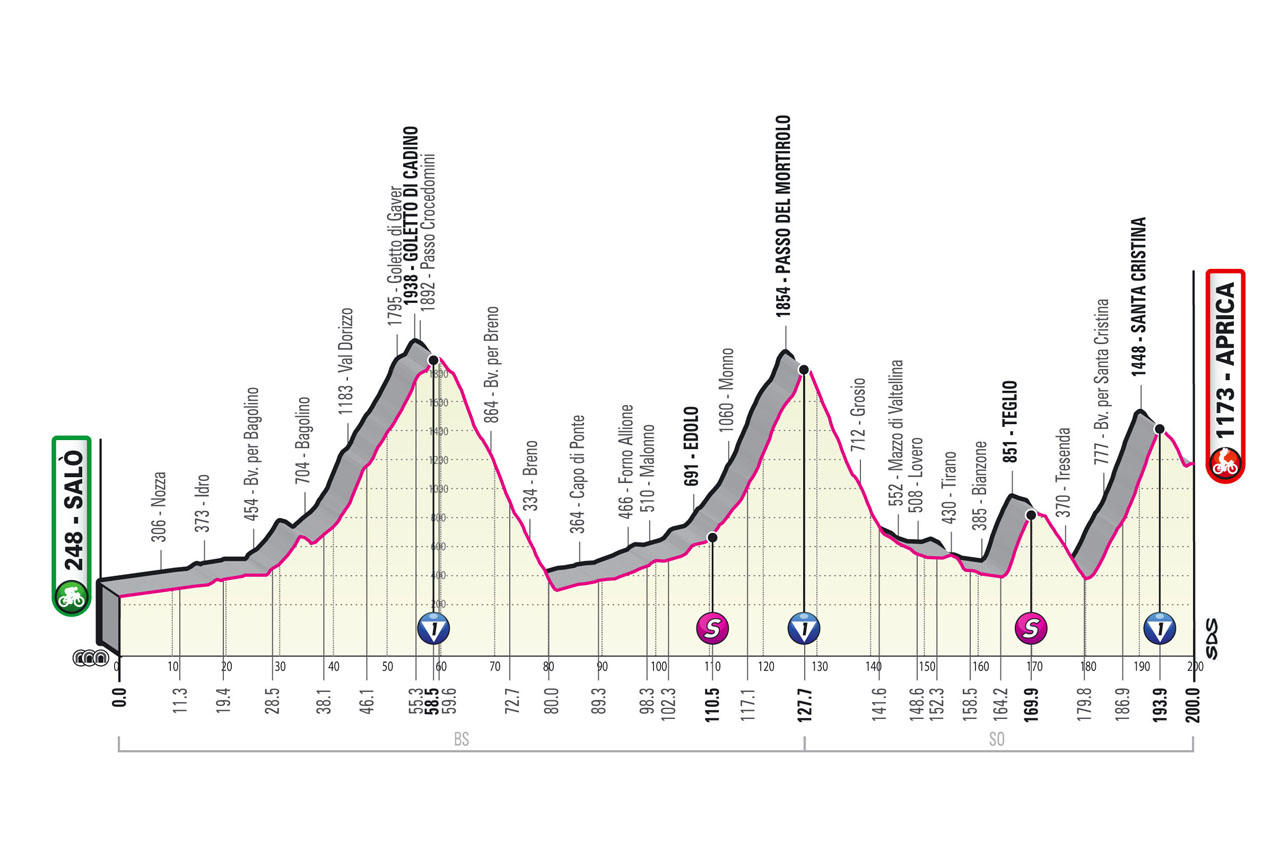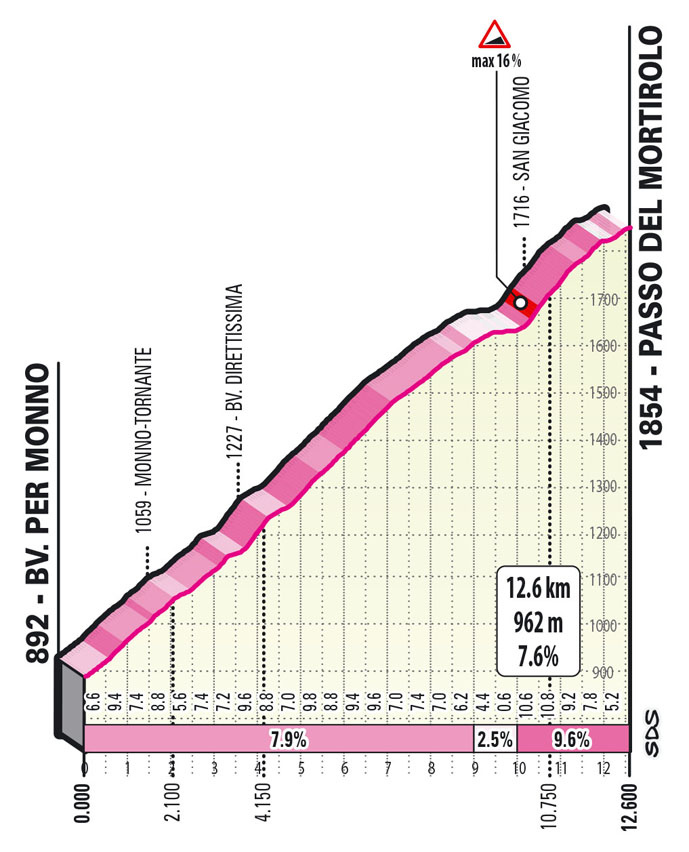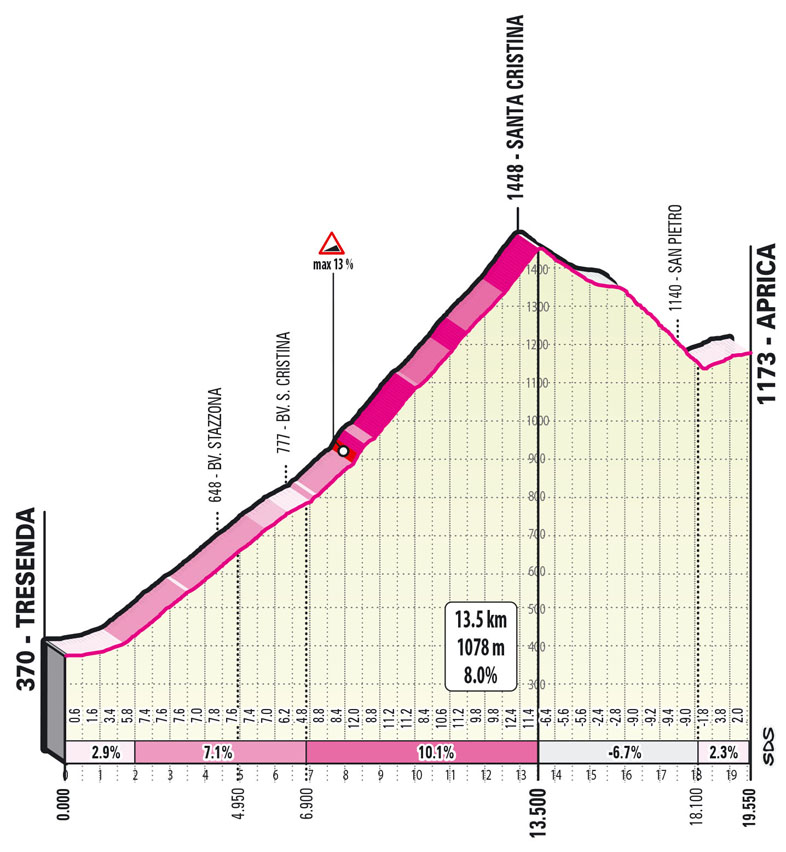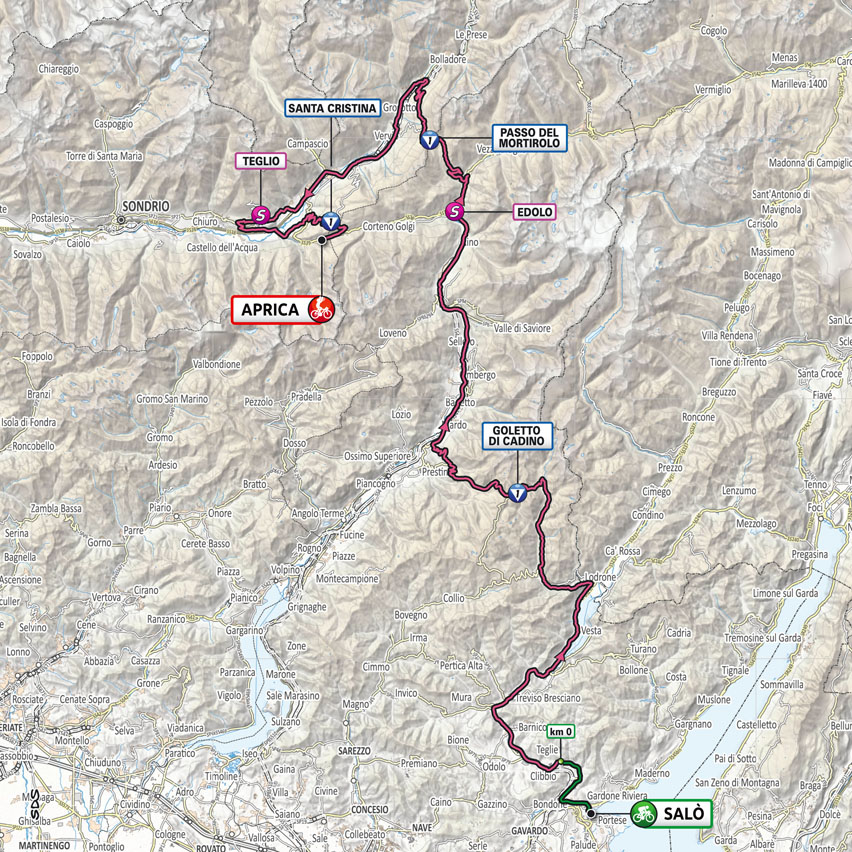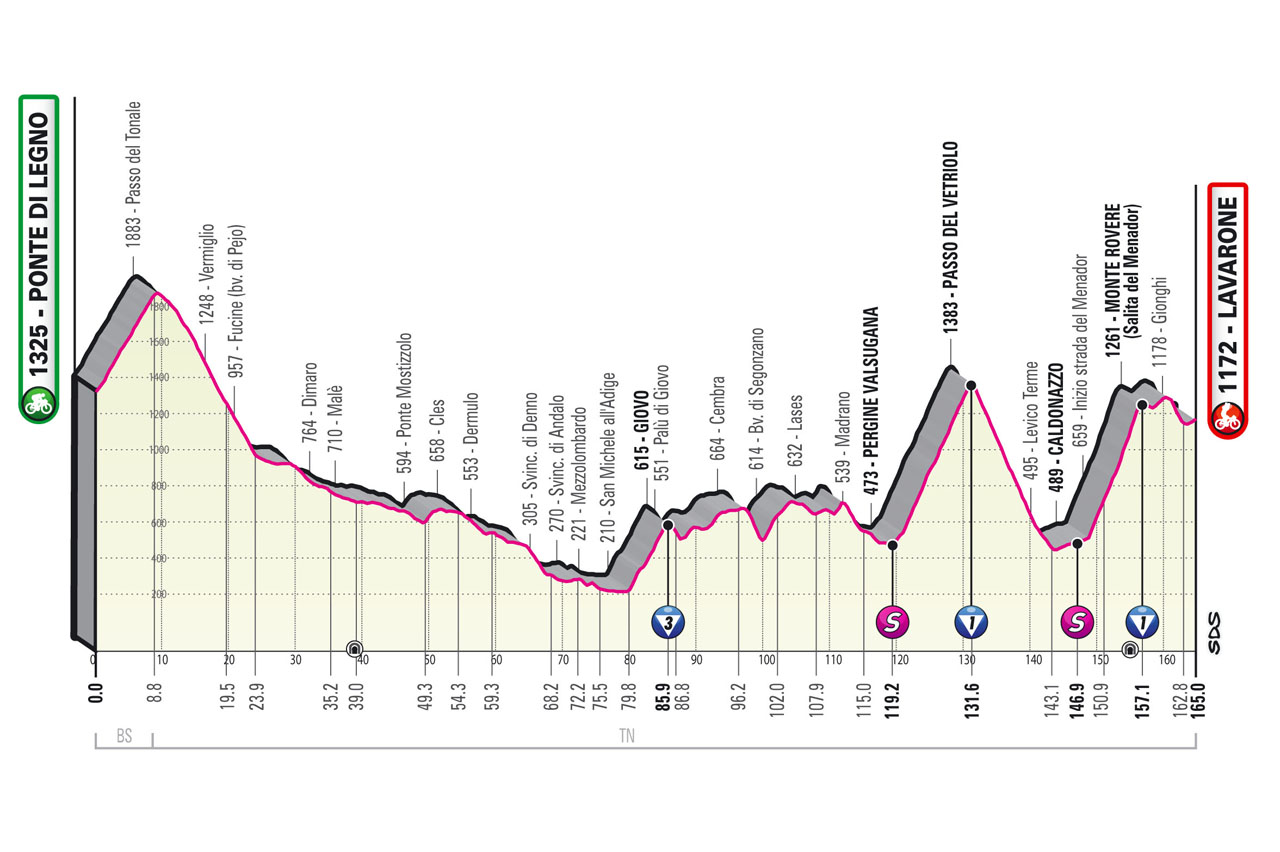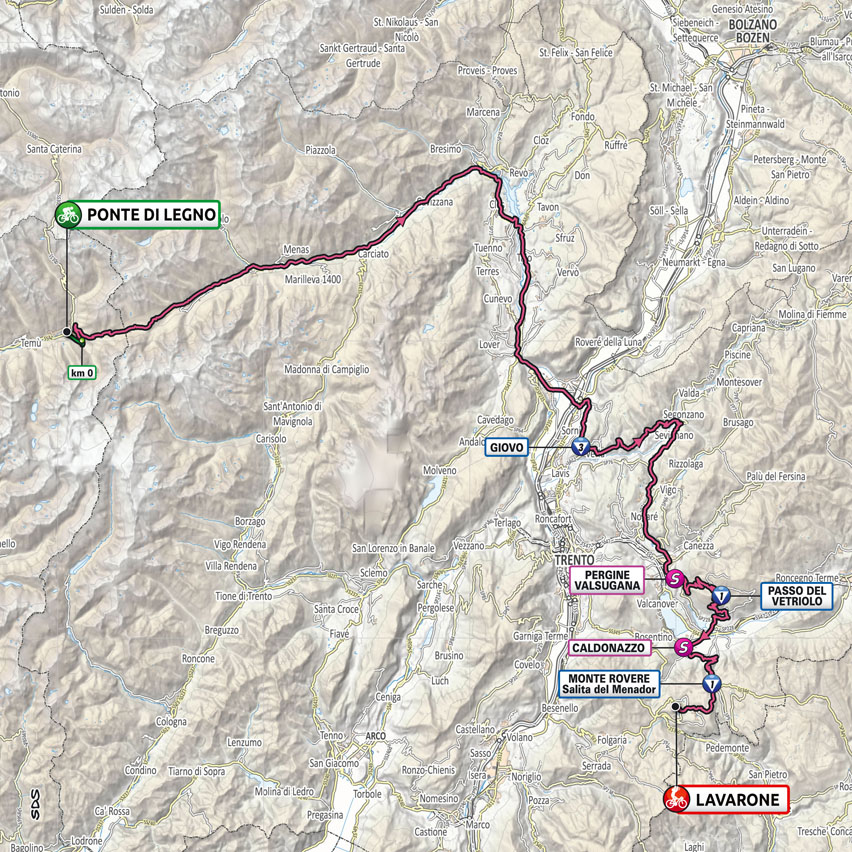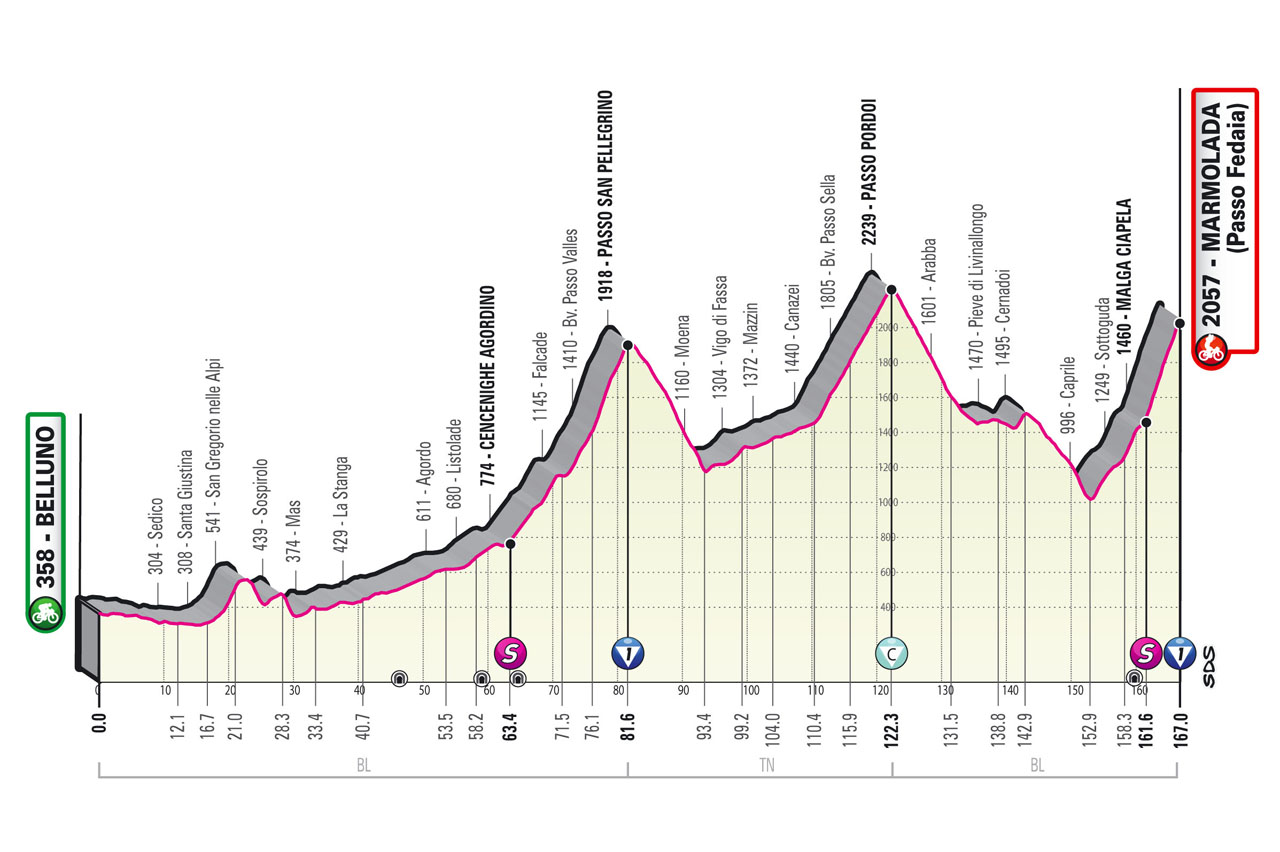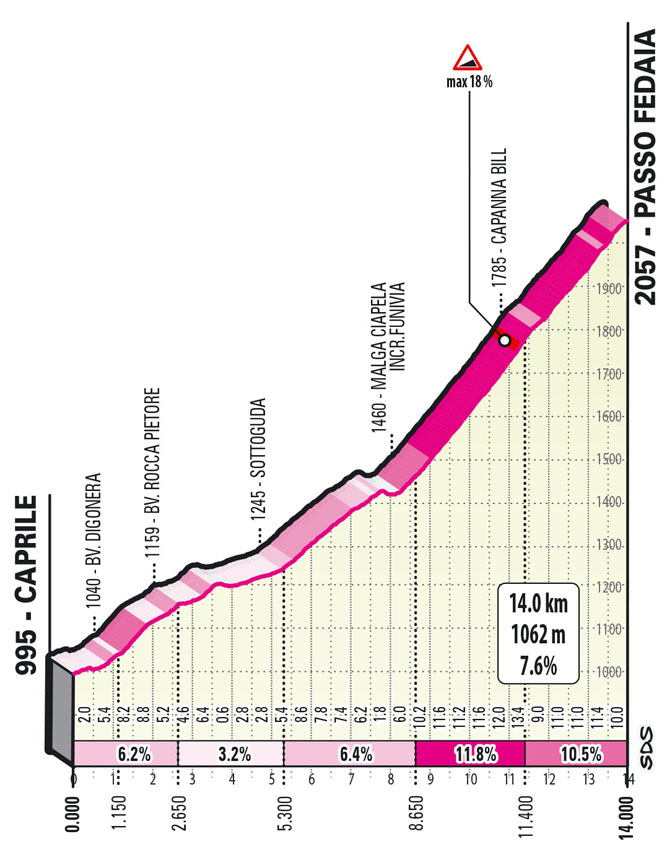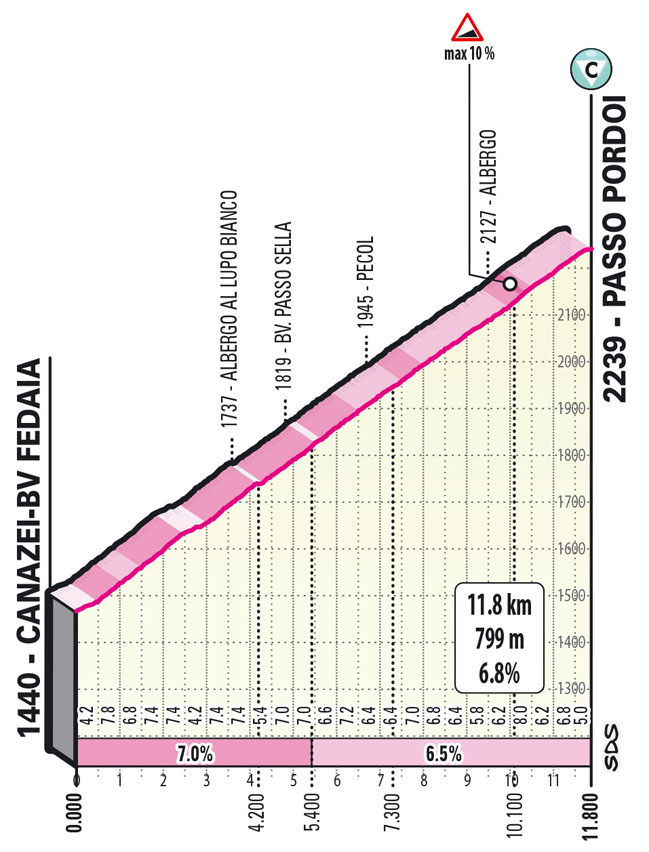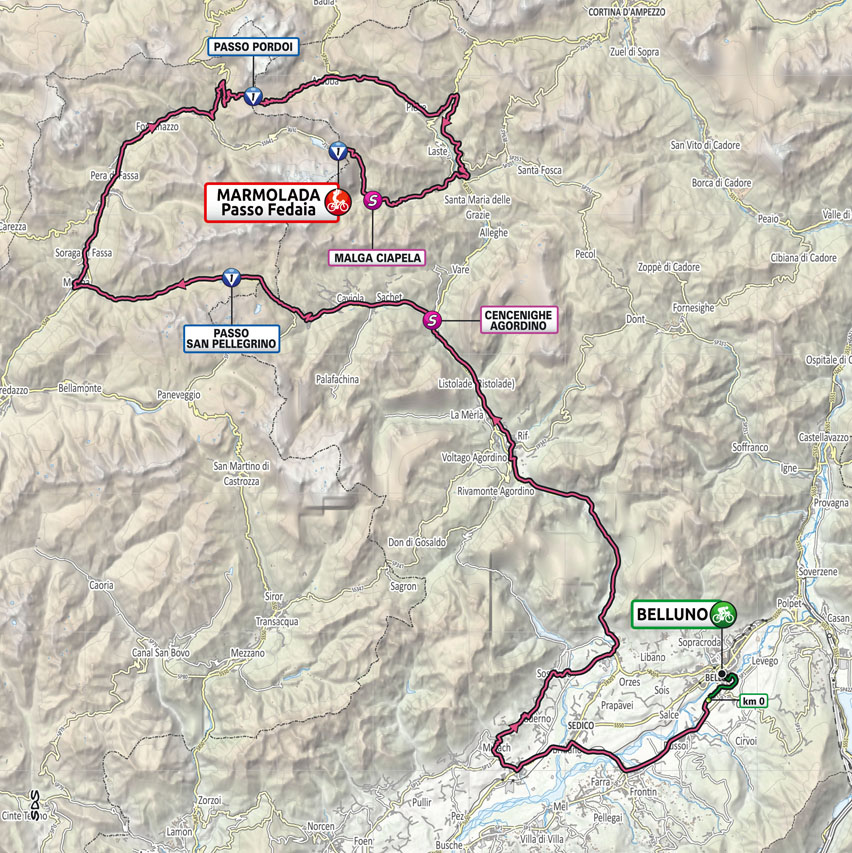AVOLA - ETNA-NICOLOSI (Rif. Sapienza)
166 km – 3,580 m vertical elevation
A stage through inland Sicily with a summit finish. Starting in Avola, the route touches the centre of Sicilian Baroque in Noto, and later passes Pantalica and Vizzini in the approach to the volcano. The stage finishes by Rifugio Sapienza, as it has already done before, but the closing climb is somewhat original. The route takes in the ascent from Ragalna (as in 2018), and then shifts to the ‘traditional’ side, the one coming from Nicolosi (as in 2011), for the last 14 km.
ISERNIA - BLOCKHAUS
187 km – 4,990 m vertical elevation
A full mountain stage across the Apennines. The route rises early on, after the start in Isernia and heading towards Rionero Sannitico. After brushing by the iconic Macerone pass, the stage course takes in the first major climb in Roccaraso. The gradients then ease off, and the route continues mostly downhill all the way to the outskirts of Guardiagrele, before taking in the double ascent to the Blockhaus. The route climbs from Pretoro to Passo Lanciano, and then descends into Lettomanoppello. After circling the foot of the Majella, it rises towards the finish, passing through Roccamorice (as in 2017), and swirling through a series of hairpins with double‑digit gradients.
RIVAROLO CANAVESE - COGNE
177 km – 4,030 m vertical elevation
A colossal stage across the western Alps, featuring lengthy climbs with affordable gradients. Starting in Rivarolo Canavese, the route runs along the Dora Baltea all the way to the Vallée and the regional capital. The stage course then takes in consecutive ascents to Pila (up to Les Fleurs), 30 years after last featuring at this race, Verrogne (as in 2019) and Cogne, heading for a grand finale in the Gran Paradiso National Park, which celebrates its centenary this year. In the final part, the route climbs steadily for over 46 km out of 80.
SALÒ - APRICA (Sforzato Wine Stage)
200 km – 5,440 m vertical elevation
A traditional mountain stage through the Valtellina, bringing back some long forgotten climbs. Starting in Salò, the route enters the Val Sabbia, passes Bagolino and clears the Goletto di Cadino (last tackled in 1998, when Pantani stormed to victory in Montecampione), crossing the Val Camonica. The route then takes in the Mortirolo coming from Monno (as in 2017), descends into Grosio and runs along the roads of the Sforzato Wine, after which the stage is named. After ascending to Teglio (the town after which the valley is named) and clearing the Santa Cristina pass (which was last tackled in 1999), the route eventually reaches Aprica.
PONTE DI LEGNO - LAVARONE
165 km – 3,740 m vertical elevation
This mountain stage is divided into two parts: it starts uphill, heading towards Passo del Tonale, and then continues mostly downhill for over 70 kilometres. After crossing the Adige river, the route ascends to Palù di Giovo (where the Moser family comes from), passing through the Valle dei Mocheni, reaching Pergine Valsugana and heading for the finish which, alone, is worth the 4‑star difficulty rating of the entire stage. Past Pergine, the route takes in the Passo del Vetriolo (for the first time along a different side) and ascends to the Menador along the tunnels and tight hairpins of the former Kaiserjägerweg, which was carved out in the rock during wartime. After the Monte Rovere categorised climb, the slender peloton will be just a few kilometres away from the finish.
BELLUNO - MARMOLADA (Passo Fedaia)
167 km – 4,490 m vertical elevation
A colossal stage through the Dolomites and the last summit finish of the 2022 Giro d’Italia. Starting in Belluno, and taking a short diversion across the valley of the Piave river through Sedico, Santa Giustina and the Certosa di Vedana, the route passes Agordo and Cencenighe, crossing the Val Cordevole upstream. The stage finale features three consecutive climbs: Passo di San Pellegrino (with gradients exceeding 15% past Falcade), Passo Pordoi (the 2022 Cima Coppi), and Passo Fedaia with the iconic Malga Ciapela straight, where the gradients hover steadily above 10%, topping out at 18%. The Serrai di Sottoguda were rendered impassable by the Vaia windstorm, which ravaged many of the locations crossed by the stage course. After 14 years, the Marmolada will be hosting another stage finish.























